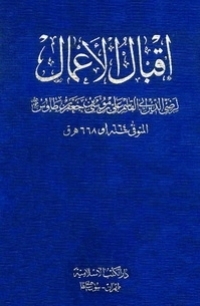Iqbāl al-A’māl

Researcher

Researcher

Iqbal al-a'mal contains du'as, ziyarat, and prayers recommended by the Ahl al-Bayt (a) at specific times during 11 months of the year. Due to the importance of the month of Ramadan, its practices are mentioned in another book called al-Midmar. The two books have also been presented together by the author in a collection.[2]
Iqbal al -a'mal has been divided into twelve chapters, each chapter covering about one month. Each month is also divided into sections and parts, so that practices related to individual days are easily accessible. Ibn Tawus has written this book in the order of the Arabic months; however, he has considered the month of Ramadan to be the beginning of the year. Two reasons he mentions for this are Ramadan's great importance in Islam, and the fact that people of knowledge have set Ramadan as the beginning of their spiritual journeys. After al-Midmar, Iqbal al-a'mal is divided into two parts: the first includes Shawwal, Dhu l-Qa'da and Dhu l-Hijja, and the second deals with the remaining 8 months of the year.
In addition to recommended practices, the author has included points he has deemed important for readers to consider. He has written his personal comments regarding issues such as the position of the awliya' (the friends of Allah), achieving purity of intention in acts of worship, and the secrets behind du'a, prayer and other practices. He also relates and determines the dates of historical events such as Mubahalah, Imam 'Ali (a) giving his ring in prayer, and Ghadir. In regard to the month of Ramadan, he writes about the importance of the month, the philosophy of fasting, hadith which support the idea that it is the first month, and the different types of people who fast. Other issues mentioned in Iqbal al-a'mal are locating the grave of Imam 'Ali (a), the reason for naming Dahw al-Ard, how the earth was created and how the Ka'ba was built.
Ibn Tawus has usually quoted the full reference for hadith or du'as included in this book, but in some cases he has only mentioned the book they were adopted from. He also notes if a du'a is not well-known to be effective in comparison to other du'as.
The full information of the hadith is given below
